Public health (PHP) has ancient origins and has been applied for a long time in the world. PHP is defined as "the science and art of preventing disease, prolonging life and promoting health through the organized efforts of the whole society". In the context of increasingly complex global health challenges, from pandemics, climate change to population aging, the role of PHP becomes more important.
In Vietnam, the concept and importance of public health have become more widely known since the University of Public Health was established in 2001 and the first Bachelor of Public Health training program was implemented in 2002. Since then, the public health sector has increasingly affirmed its important role in the health system, contributing persistently and silently to the work of proactively, comprehensively and systematically taking care of people's health. Especially during the COVID-19 pandemic, the team of public health staff has been present at all levels, in all communities, where people need to be protected the most.
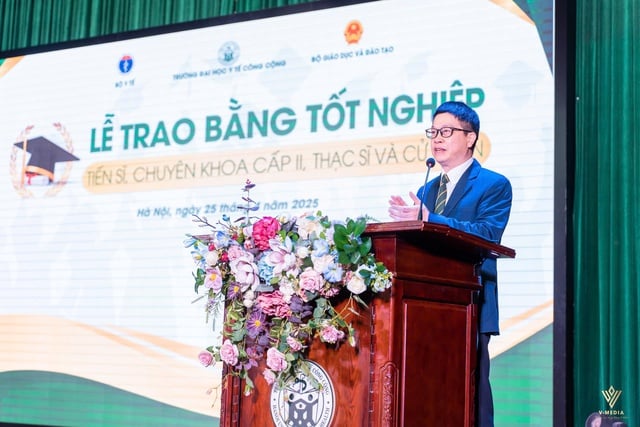
Prof. Dr. Hoang Van Minh delivered a congratulatory speech to the new PhDs, CKIIs, MScs and bachelors at the 2025 graduation ceremony.
Strengthening public health workforce training - an urgent requirement of the health system
Vietnam is still lacking human resources in public health and preventive medicine. According to statistics from the Ministry of Health , the country is still short of nearly 23,800 preventive health workers, including more than 8,000 preventive medicine doctors and about 4,000 public health bachelors. Not only is there a shortage in quantity, the capacity of the existing team is also limited in many important areas such as policy analysis, health management, behavior change communication, risk assessment, scientific research and especially the ability to adapt to digital transformation. This shortage directly affects the capacity for disease prevention, epidemiological surveillance and the ability to respond to emerging health risks, key factors to ensure a sustainable health system.
Resolution 72-NQ/TW (2025) of the Politburo clearly stated: "Strongly shifting from a mindset focusing on medical examination and treatment to proactive disease prevention, focusing on protection, care, and comprehensive and continuous health improvement throughout the life cycle." In addition, Resolutions 57-NQ/TW (2024) on science, technology and innovation development, Resolution 59-NQ/TW on international integration and Resolution 71-NQ/TW (2024) on breakthroughs in education and human resource development have created a new foundation and driving force for the fields of health sciences in general and public health in particular. These orientations open up opportunities for the public health sector to develop modernly, integrate, and closely connect knowledge, technology, and people.
Innovation and international integration in Public Health
According to the World Health Organization (WHO), modern public health must ensure 12 essential functions, from population health surveillance, responding to public health emergencies, developing policies and laws, to community mobilization, human resource development and research, and applying science and technology in health. This shows that public health is not only a "disease prevention industry", but also the knowledge and management foundation of the national health system, where all decisions and policies are based on evidence and aimed at the health benefits of the community.
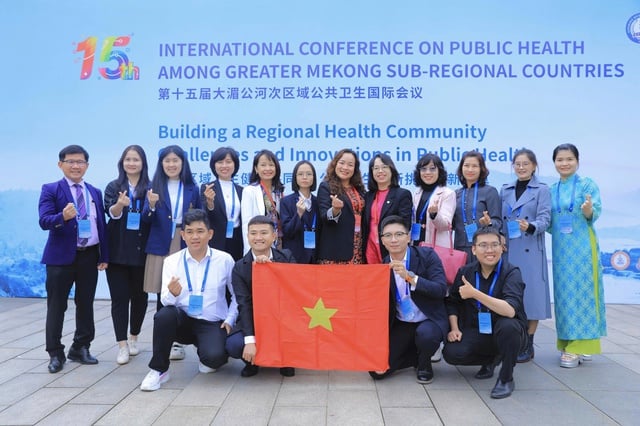
Lecturers and students of Public Health from Hai Phong University of Medicine and Pharmacy, Hue University of Medicine and Pharmacy, and Da Nang University of Medicine and Pharmacy attended the International Conference on Public Health in the Mekong Subregion countries on October 23-26, 2025.
To integrate internationally, Vietnam's public health sector needs to proactively expand cooperation and participate in global research and training networks. Although Vietnam has become a middle-income country, leading to a decline in some traditional funding sources, there are still many opportunities to cooperate with prestigious international organizations such as the US National Institute of Health (NIH), the UK Medical Research Council (MRC) or the European Commission (EU)... To access these resources, the important thing is training and research capacity and especially the capacity to publish international science. Each work published in prestigious journals is not only an academic achievement, but also affirms Vietnam's intelligence, mettle and scientific reputation in the international arena, a sustainable path to enhance the position of Vietnam's public health sector.
Public Health Lecturer - An important subject of innovation and international integration
The University of Public Health is the leading training institution in the field of Public Health in Vietnam. The school has been comprehensively innovating its training program towards training according to output standards that simultaneously meet international scientific standards and practical health care needs in Vietnam. Along with core competencies in disease prevention and public health care, students are equipped with additional knowledge and skills to develop health policies and systems, as well as conduct scientific research projects according to international standards. In the context of digital transformation, lifelong learning capacity and the use and application of information technology in learning, working and self-development have also become mandatory requirements for people working in Public Health.
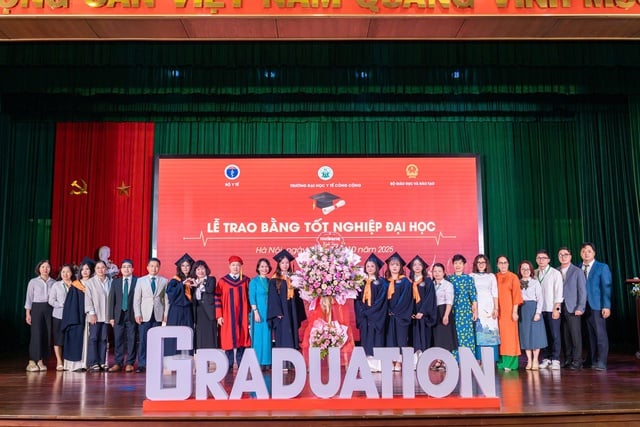
Prof. Dr. Hoang Van Minh and staff and lecturers of the University of Public Health congratulated new students on receiving their graduation certificates, October 31, 2025.
To ensure the achievement of the goals of innovation and international integration, YTCC lecturers need to continuously learn, improve their knowledge and professional skills as well as always demonstrate the spirit and attitude of serving the common work. Teachers not only carry out the task of imparting knowledge, guidance, and training skills, but also arouse and promote motivation and aspiration to contribute in students. According to the spirit of Resolution 71, teachers of the new era must "train people with capacity, courage and creativity". According to Resolution 59, they are the bridge of knowledge between Vietnam and the world, contributing to spreading humanistic values and scientific progress.
Source: https://suckhoedoisong.vn/doi-moi-dao-tao-y-te-cong-cong-nen-tang-cho-cham-soc-suc-khoe-toan-dan-169251113082923473.htm







![[Photo] Action for the Community tells stories of enduring journeys – both intimate and great, yet quiet and determined](https://vphoto.vietnam.vn/thumb/1200x675/vietnam/resource/IMAGE/2025/11/15/1763179022035_ai-dai-dieu-5828-jpg.webp)
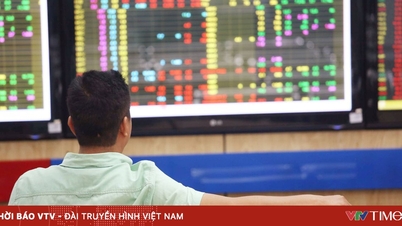

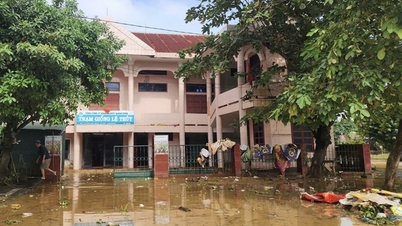
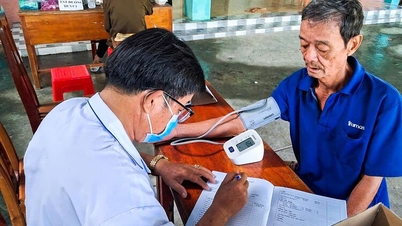

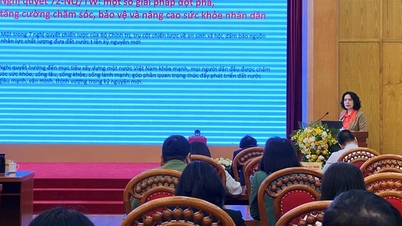
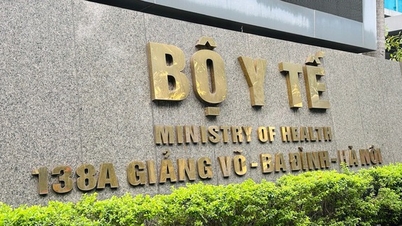




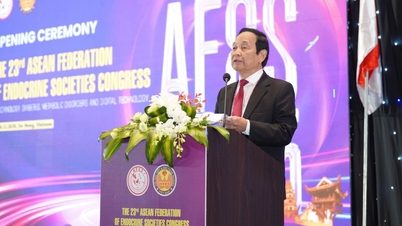
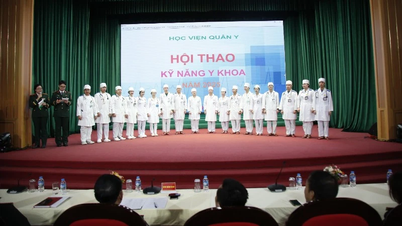


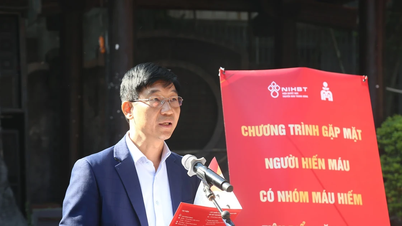










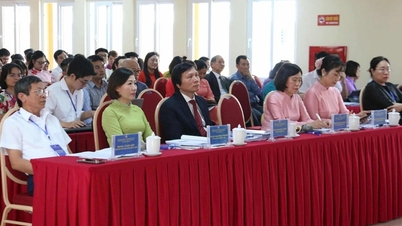













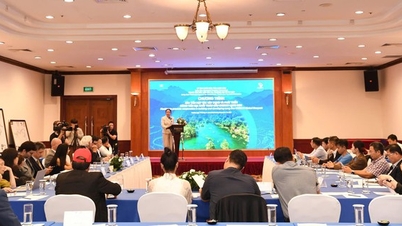








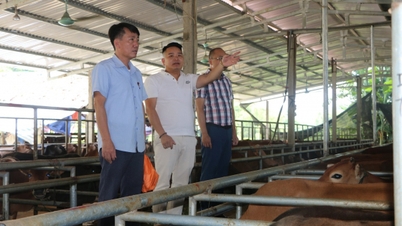

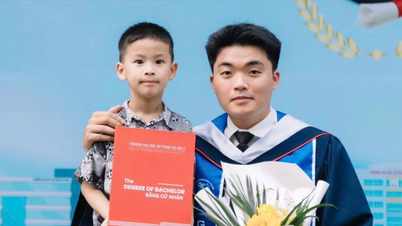

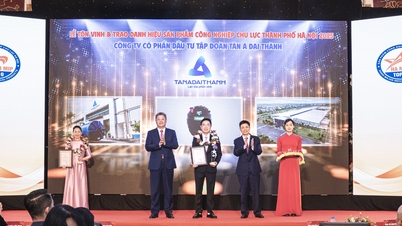



















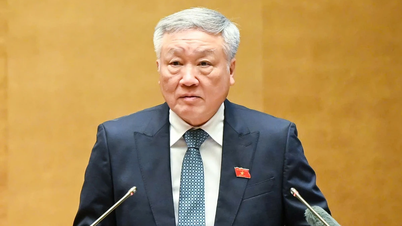


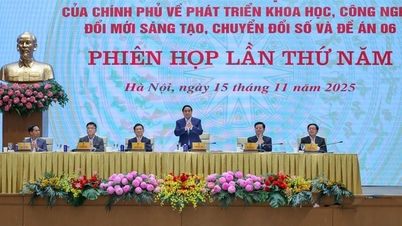
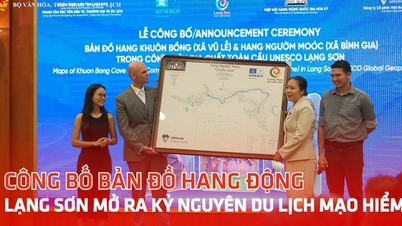





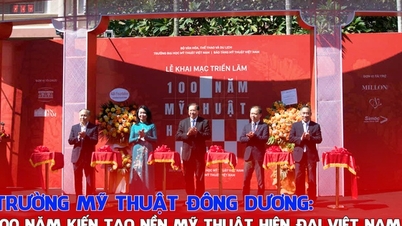



















Comment (0)